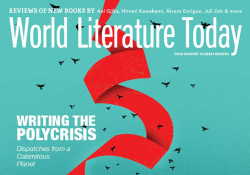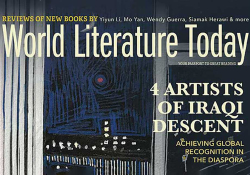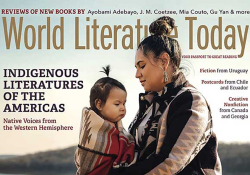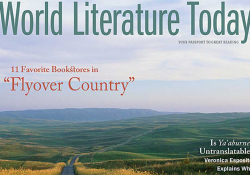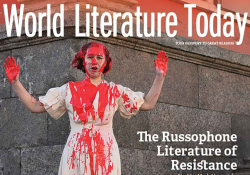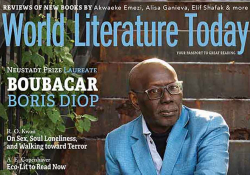Editor’s Note
 Here are some things we cannot guarantee you: guarantees, or history’s purity.—Pádraig Ó Tuama, “Rite of Baptism”
Here are some things we cannot guarantee you: guarantees, or history’s purity.—Pádraig Ó Tuama, “Rite of Baptism”
In his provocative 2021 study The Editor Function: Literary Publishing in Postwar America, Abram Foley mulls what he calls “the rickety fit between word and world.” Implicit in that ricketiness are the fissures or fractures that inevitably frustrate writers’ attempts to narrate reality, yet those very gaps are simultaneously openings that allow for the flourishing of human creativity, engagement, and solidarity, creating opportunities for “collective modes of being and knowing.” To put it another way, art’s “affective modes of affiliation” (empathy, friendship, love), arising from such creativity, help create “fragile spheres of solidarity” between us. Ultimately, for Foley, the creative work of artists and writers—not to mention translators and editors—implies a poetics of eros in the gap between word and world. The promise of eros, in turn, leads to an ethos of community.
Speaking of community, Pádraig Ó Tuama’s poem “Rite of Baptism” in the current issue (page 24) subtly enacts Foley’s thesis, putting eros to the test. In the poem’s enigmatic opening couplet—“If you pass, know that you will have no say / about what happens”—the rite of passage implied by the title, according to the speaker, is less elective than forced, a test to be “passed” by the addressee. Others will have their say, but not the person being baptized (if an infant). We know that baptisms manifest a community’s willingness to accept a new member into their midst if some elder vouches for the elect’s bona fides—their “good faith,” etymologically, professed on their behalf. Only later will the neophyte have their say, presumably when they either opt in to the rite themselves or opt out of a community they didn’t choose. In the language of the poem, “Some have been waiting for you for generations; / circling, like hunters, round your little heart.” The metaphor of the lover as hunter is at least as old as the Greek mythological tales of Artemis and Actaeon, but shadows of power and possession often leave the hunted longing for another sort of freedom, as Iphigenia knew only too well.
In “Rite of Baptism,” the speaker tries to comfort the neophyte with the old cliché that “This truth will set you free” but qualifies it with an “eventually” that further occludes any sense of certainty in the poem. The myth of purity, or purification, emblematized by the rite of baptism turns out to be the community’s way of justifying its embrace—some might call it coercion—of the uninitiated. Ultimately, Ó Tuama writes, “. . . nobody knows where the past begins — / in the beginning it was all a dream, not a story.” If the rite of baptism both breaks with the past and marks a new beginning, the substitution of the community’s dream by the initiate’s eventual story inevitably enacts a further break between word and world. Whether the fissures between them develop into a chasm depends on the elasticity of both word and eros.
“History’s purity” is often a sword wielded against those beyond the pale of community, a shibboleth designed to trip up the tongue of the infidel. As Ó Tuama and the other contributors to this issue would assert, such initiation rites and border-crossings present limit cases of literature’s power to resist when the world insists on having its say without the freedom of assent. The storyteller would insist that there is no story without contamination, no rite of initiation unshadowed by power.
